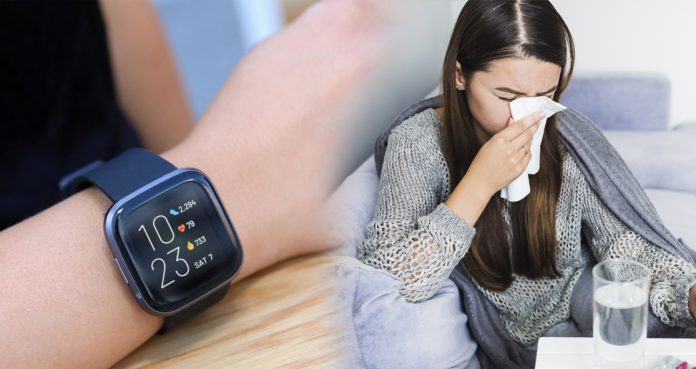The Fitbit you are wearing could now do more than just tracking your activities. It may potentially help prevent the spread of flu.
A study conducted by the researchers at the Scripps Research Translational Institute looked at data from people who use Fitbits and found that the activity trackers were able to predict flu or infectious disease in real-time at the state level.
The researchers said, “This [study] marks the first time heart rate trackers and sleep data have been used to predict the flu or any infectious disease in real-time.”
The study analyzed the Fitbit data from more than 200,000 users in California, New York, Illinois, Pennsylvania, and Texas from March 2016 to March 2018. Among all the users, nearly 47,248 wore a Fitbit device during the study period, of which, more than 60 percent were female.
A person with flu often has an increased heart rate and their sleep patterns change. Keeping this thing in mind, the study authors calculated the users’ average resting heart rate and the duration of sleep, and then they looked for any changes in their findings.
Considering the weekly changes in their resting heart rate and average sleep pattern, the researchers identified them as abnormal, estimating for any flu-like illness. In addition, they were able to see real-time flu surveillance and prediction at the state level.
Study author and epidemiologist Jennifer Radin said, “Responding more quickly to influenza outbreaks can prevent further spread and infection, and we were curious to see if sensor data could improve real-time surveillance at the state level.”
“We demonstrate the potential for metrics from wearable devices to enhance flu surveillance and consequently improve public health responses,” she added. “In the future as these devices improve, and with access to 24/7 real-time data, it may be possible to identify rates of influenza on a daily instead of a weekly basis.”
Traditional flu surveillance could limit the ability to quickly act on the response measures because it takes time, probably a week or two.
In a statement, Fitbit told CNN, “Clinical researchers are using wearables to pioneer new ways around how we understand, prevent and treat disease and identify better approaches to keep people healthy and deliver more meaningful health outcomes.”
“Our research relationship with The Scripps Institute, which was announced in early 2019, is one example of that,” the company added. “We’re excited by the potential wearables can play in helping to better predict the flu and the positive impact that can have on both those with the flu and the healthcare system.”























